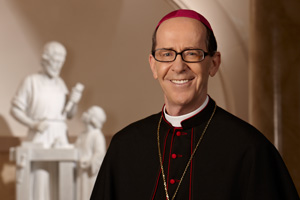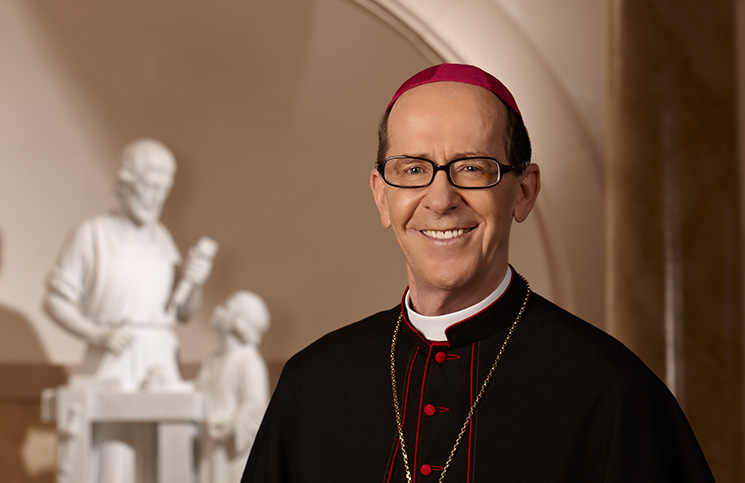
Since his election on March 13 of this year, he has caught the attention of the world. Even non-believers and non-practicing Catholics are paying attention. Pope Francis surprises and inspires, even as he challenges us to love the poor and in them to meet Jesus anew.
‘Living like Lent without Easter’
Recently our first pope from the American continent published what some are calling “Francis’ Game Plan for Christians.” In this document (an Apostolic Exhortation), he lays out what we Christians are to be about at this time in history. He also says what we should not be about. For example, he encourages Christians to embark upon a new chapter of evangelization, one that is sparked and animated by joy. But he candidly observes (#6), “There are Christians whose lives seem like Lent without Easter!”

Pope Francis goes on to say, “I realize of course that joy is not expressed the same way at all times in life, especially at moments of great difficulty. Joy adapts and changes, but it always endures, even as a flicker of light born of our personal certainty that, when everything is said and done, we are infinitely loved.”
A joy that endures through moments of great difficulty is not a joy of purely human origin. It springs from the fountain of love that we know as Jesus Christ. Pope Francis writes (#5), “Our Christian joy drinks from the wellsprings of his brimming heart. He promises his disciples: ‘You will be sorrowful, but your sorrow will turn into joy’ (Jn 16:20).” One can see why the Holy Father has entitled his game plan: “The Joy of the Gospel.”
‘The Joy of the Gospel’
Having witnessed his contagious joy, his effervescent sense of humor, and his cheerful love of the poor, it is not surprising that our Holy Father decided that this strategic papal document should focus on the joy of encountering and living in friendship with Christ. This message is not merely a nod to the topic of happiness before getting on to weightier matters that deserve his pontifical attention. It arises from convictions forged in the nitty gritty of his pastoral experience as a priest and bishop. It gives a snapshot of how he has sought to live his own life and ministry, and proposes to serve as the Successor of Peter.
Not only does joy not find its origin in human beings, for us who are spiritually scarred by original sin it comes forth from a prior experience of its opposite: the sadness of separation from God. This is why the pope candidly speaks of the need for forgiveness (#3), “How good it feels to come back to [Jesus] whenever we are lost! Let me say this once more: God never tires of forgiving us; we are the ones who tire of seeking his mercy. Christ, who told us to forgive one another ‘seventy times seven’ (Mt 18:22) has given us his example: he has forgiven us seventy times seven…With a tenderness which never disappoints, but is always capable of restoring our joy, he makes it possible for us to lift up our heads and to start anew.”[quote_box_right]
Pope Francis’ Game Plan
Read more columns from this series by Bishop Olmsted.
[/quote_box_right]
Pope Francis warns, at the same time, that consumerism, which is so prevalent today, carries within it the grave danger of blunting our conscience, making the heart covetous and feverishly in pursuit of frivolous pleasures. The inevitable result of this inward spiral is a soul that is tone-deaf to God’s voice and to the voices of others, a heart where the quiet joy of God’s love is no longer felt. How can we escape from this inward spiral? The Holy Father responds (#3), “I invite all Christians, everywhere, at this very moment, to a renewed personal encounter with Jesus Christ, or at least an openness to letting Him encounter them.”
What thrills the pope
In a document that is highly personal, but also dynamically missionary, the pope tells us what, for him, is a most exciting invitation found in the Bible. He writes (#4), “I find it thrilling to reread this text: ‘The Lord, your God is in your midst, a warrior who gives you the victory; he will rejoice over you with gladness, he will renew you in his love; he will exult over you with loud singing, as on a day of festival’ (Zeph 3:17). This is the joy which we experience daily, amid the little things of life, as a response to the loving invitation of God our Father.”
As one would expect in a document with the title “The Joy of the Gospel,” Pope Francis shows how the Gospel accounts are (#5) “radiant with the glory of Christ’s cross, [that] constantly invites us to rejoice.” He provides a rich collection of quotations from Jesus and Mary, and from the first disciples of Christ, in order to show us that “even amid persecution they continued to be filled with joy.” Then, the Holy Father asks this rhetorical question, “Why should we not also enter into this great stream of joy?” Good question, yes?
In the next issues of The Catholic Sun, I shall offer further reflections on these and other aspects of Pope Francis’ game plan. This plan, which focuses so profoundly on joy, also deals with other issues of great import. For example, it points out cultural challenges that offend human dignity; it critiques a financial system which rules rather than serves; it warns of a sterile pessimism that undercuts a Christian’s ability to witness to the Gospel of Christ. While we live in a world teeming with obstacles to the Gospel, we have consolation of His promise (Jn 15:11), “I have said these things to you, so that my joy may be in you, and that your joy may be complete.”







